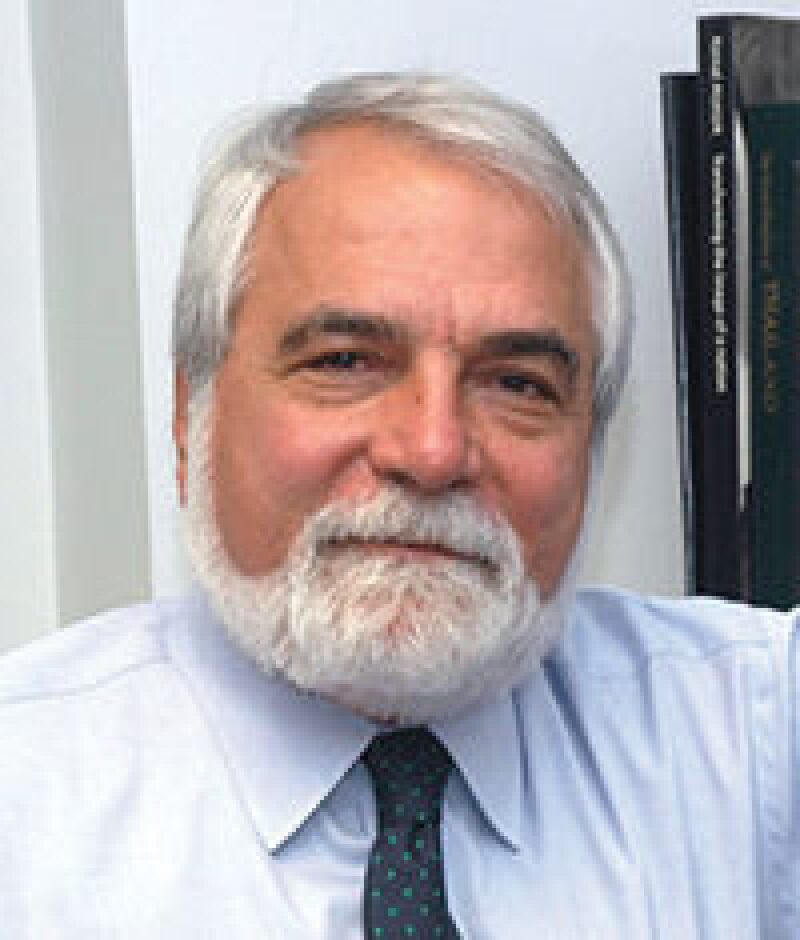Although more than 40 years ago, I vividly remember entering the classroom to take my last final before graduating from college. I was happy it would be my last exam and nobody would test my knowledge again. No more sleepless nights to complete term projects, no more homework or studying for exams. Now with good academic credentials, I was almost certain I was armed with all the fundamental knowledge and current with the most recent technological advancements I would need to solve every engineering problem I would face in the “real world.”
Was I wrong? You bet I was.
You’ve likely experienced a number of similar emotions—from excitement and relief to uncertainty and terror—at the prospect of entering the real world. Granted, we all feel a little burned out when we are ready to leave school and apply what we have learned to meet real-world problems. The thought of taking another course or learning another methodology is probably the furthest from one’s mind when on the verge of graduation.
Studying engineering can sometimes make one feel confined to the formalisms of academic life, and there is nothing wrong with that feeling from time to time. After all, a college education is meant to discipline our thinking, to teach us how to learn, and to prepare us for further learning. Higher-education institutions and their faculty choose which tools and resources are incorporated into the curriculum, and are responsible for considering their relevance and effectiveness beyond the walls of academe. Institutions and faculty must also strive to develop in students the ability to continue to engage in scholarship, research, or broad intellectual development on an ongoing lifelong basis, even without relationship to a higher-education institution that provides access to its licensed information resources.
After graduating from college, one’s personal syllabus for learning should not be empty. Be alert to opportunities for learning—for attending in-house seminars, professional short courses, and conferences, and for reading and writing technical papers. Participation will be subject to whatever constraints your professional life imposes but also will be governed by your determination and choice.
If you think you lack the patience to read about a certain topic you know by heart, try writing about it so others can benefit from your understanding. While reading is an effective way to learn, you will find writing on a topic you think you know well makes you learn even more. Or, if you simply cannot write, focus on making a significant accomplishment that someone else will write about. So here is the first item for inclusion in your post-school curriculum: Task yourself with writing a technical paper every year and presenting it at a forum in front of your peers, and ask them to grade you. Do not get discouraged if they fail you. Take it in stride and try to improve your grade with the following year’s paper.
The second item in your post-graduation annual curriculum should be participation in a short course on a topic you are unfamiliar with (and perhaps you think you have no interest in). When finished, grade yourself and evaluate whether you now understand the topic, and place a check mark for another item completed.
A third item to include in your self-created study plan is to attend a technical symposium, preferably at an advanced level in the area of your specialization and interest.
If you are successful in this study plan and if you can make yourself, year after year, subscribe to it, you will certainly develop a much better sense of belonging to the profession. And when your learning is self-directed, it can be a lot more fun than school was.
These learning-related activities will also help you establish your professional network. Surround yourself with people who energize you. In that network, you will have many colleagues with whom you will feel comfortable. If you do not know the direction you want your professional growth to take, ask the people in your network about different avenues. You’ll learn about a whole variety of career paths, and you’re bound to find an area that interests you and a compass to direct you on the path you take. And when it comes to deciding what type of job or career you want, don’t be afraid to make a mistake: Today, on average, a starting professional is expected to have more than seven jobs during his or her professional lifetime. Treat your first job as a learning experience and as a way to find out what you love to do. After all, it is the beginning of your career.
Of course, a discussion on life after college is incomplete without mentioning graduate school. Is graduate school right for you? Only you can answer that question, and you should not decide without an in-depth analysis. Consider your interests, ambitions, dreams, and perhaps most important, your abilities. Ask yourself whether you have the motivation for another two, three, four, or five years of schooling. Most of the justifications for attending graduate school revolve around intellectual curiosity, a desire to immerse yourself in what you are passionate about, and professional advancement.
One of the more critical questions in making the decision, however, involves timing. Perhaps working in the “real world” for a few years is a good idea. In fact, the ultimate efficacy of a petroleum engineering graduate degree can be significantly enhanced by the student’s having some nonacademic field experience before enrolling.
Whether you decide to continue with your post-graduate studies immediately after undergraduate school, or you decide to make a return to student life after a few years of industry experience, make sure you do a serious reality check. Ask yourself questions like the following: Do I enjoy reading, writing, and doing research? Am I willing and able to make my graduate school training one of my top priorities in life? Can I afford graduate school? Am I willing to be poor for a while and am I ready to become a student again? Am I doing this because I don’t know what else to do? In the end, your answers to these questions should help you make the correct decision. Remember: Only you can determine whether or not graduate school is right for you.
After graduation, we all think we will not be encumbered with the routine tasks of learning such as homework and exams (and we probably spent many years looking forward to that). However, learning is a big part of what makes life interesting. Even though you may not be expanding your knowledge through term papers or homework, you can continue to learn in a different capacity. Also, it is not necessary to always do what you have been taught to do in your college education. Rather, push the envelope by taking what you have been taught and applying it in ways your professors could not. We all grow under pressure, so make a commitment to meet your deadlines, challenge the status quo, and not run out of the kitchen even if it gets a little hot.
There is no instruction manual for life. The best you can do is to take your emotions and uncertainty and use them as a springboard for success, not only during your first year on the job but beyond. Whatever path you consider, enjoy the journey along the way. After all, your commencement speaker who proclaimed “the world is yours” wasn’t exaggerating. It’s yours for the taking.


